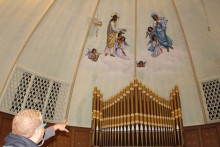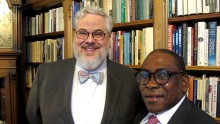Anglicans in Burundi aim for one person one tree
In the Anglican Province of Burundi, the church has set a goal of planting 10 million trees—one for each person in the country—during the next five years.
Young people who are part of the Green Anglicans initiative in Central and Southern Africa have encouraged planting trees to mark occasions such as baptisms, confirmations, and weddings. The church of Burundi is taking that practice a step further with its effort to promote and maintain forests in its nation.



